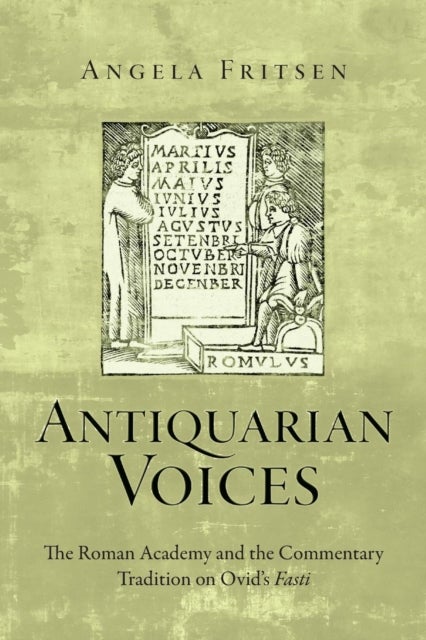
Antiquarian Voices av Angela Fritsen
399,-
<div>Ovid''s <i>Fasti,</i> his poem on the Roman calendar, became especially influential during the fifteenth century as a guide to classical Roman culture. Ovid''s treatment of mythological and astronomical lore, his investigation of anniversaries and customs, and his charting of monuments and history offered humanist poets and intellectuals an abundance of material to unravel. They could identify with Ovid as <i>vates operosus,</i> or hard-working seer-poet, suggesting both researcher and inspired authority.<br> <br>Angela Fritsen''s <i>Antiquarian Voices:</i><i>The Roman Academy and the Commentary Tradition on Ovid''s</i> Fasti offers the first study of the Renaissance exegesis and imitation of Ovid as antiquarian. Fritsen analyzes the <i>Fasti</i> commentaries by Paolo Marsi (1440-1484) and Antonio Costanzi (1436-1490) as well as the connections between the two works. It situates Ovidian <i>Fasti</i> studies in the Roman Academy under the mentorship of Pomponio Leto. Nowhere c








